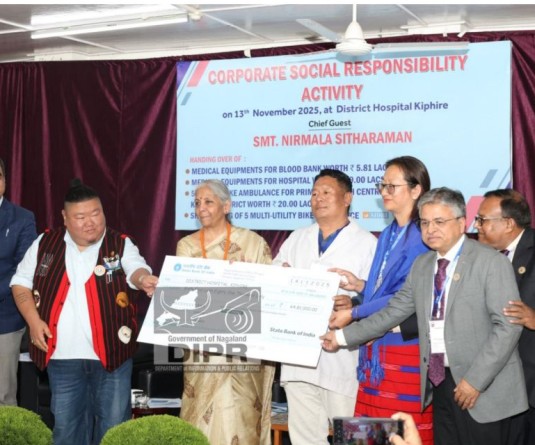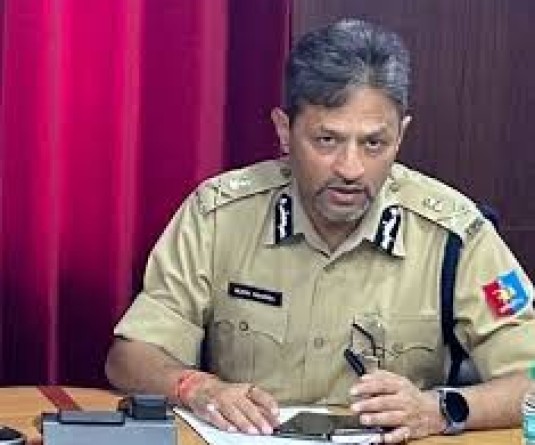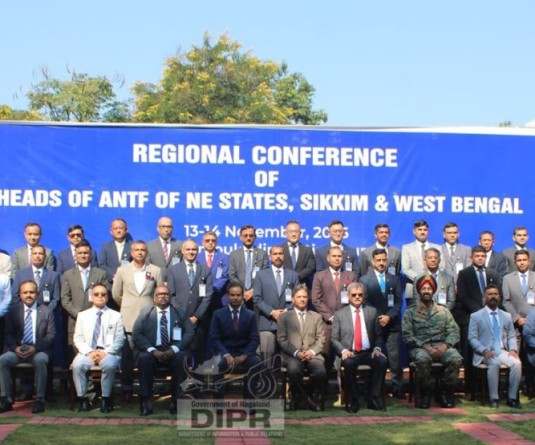
Some voters have lost faith in electoral system while some hold on to hope
Morung Express News
Dimapur | February 26
In Dimapur district’s Ghaspani-1 A/C, two cousins are contesting the same seat in the 2018 Nagaland State general elections. Kohima district’s Northern Angami-I A/C and Northern Angami-II A/C have been represented in the Nagaland Legislative Assembly by one family each. Brothers of one family are vying for three seats in Mokokchung district, one of them in direct contest against a seat long held by one family. That power is concentrated in the hands of a few is not new to Nagaland. Elections have become increasingly corrupt and disenchanted youth enough not to cast their votes at all on February 27.
“I will not cast a vote because only a few families are gaining from the electoral system in Nagaland,” says SR (32) from Ghaspani-1. And, the “present system will be unable to bring any change,” feels SR even though churches rallying for ‘Clean Elections’ have made a “slight difference.”
SR is joined by several voters who will not partake in polling.
No faith
KL (40), for instance, has seen too much money exchange hands between candidates and the electorate. “What’s the point of making the effort to go all the way to a polling station to take part in such a corrupt system?” asks KL. For IW (34), “your vote counts” is “plain rhetoric to make you feel important in the political process once every 5 years.” The reality, notes IW from Dimapur-II A/C, is quite the opposite—citizens don’t count even once in those 5 years. Corruption thrives, elite pockets get deeper and citizens have no voice (or rights). “My vote does not matter because all the candidates in the fray are corrupt and there is no question of choosing the lesser of many evils!” exclaims an agitated IW.
How about choosing NOTA then? “Even the None of the Above (NOTA) option will make no difference unless there is a provision for re-polls with fresh candidates,” SR maintains. Through ‘NOTA,’ a voter in Indian elections can choose not to vote for any candidate contesting the elections. However, the candidate with the highest number of votes will be elected to the constituency. “This makes NOTA ineffectual,” says IW.
There are others who would like to vote but could not go to their village to vote.
“My name is in the electoral roll in Wokha but I have never cast my vote,” informs RH (30) who lives and works in Dimapur. Why not go home to cast your vote? “I don’t have enough faith in the current electoral system. The only thing that will happen after election is the rich, and their supporters, will get richer!” says RH, who, however, believes in the concept of democracy. “Only if elections in Nagaland become about one person casting one vote of their own free will, then it makes sense to take part in such a system.” For now, reports from around Nagaland suggest voter intimidation, proxy voting and others such malpractices as ingrained features of the electoral process.
The deficiencies of the system notwithstanding, there are Naga people who will not vote in order to avoid becoming part of an oppressive regime.
“Not voting is a form of dissent and non cooperation against a system that is responsible for the oppression of the people,” affirms a young Naga scholar who has never taken part in the electoral process. Even as elections are being conducted to showcase the face of Indian democracy, draconian laws like the Armed Forces (Special Powers) Act, 1958, stay in effect in Nagaland, nullifying even the right to life for people living here. Added to the boiling pot of corruption, state oppression becomes systemic to an alarming degree, enforced in the name ‘of the people, by the people, for the people.’
‘Will vote for change’
Those who will cast a vote, however, believe that it could affect change. “This is my first time and I will cast my vote because our condition is pathetic. There is no other avenue to affect change but through electoral politics,” feels IL (34) from Dimapur-III A/C who has not considered Naga national politics as an avenue for change unlike PC (32) from Khonoma who will vote only when an official Naga national government is instated.
“It is my constitutional obligation and if I don’t vote, someone else may cast for me and my right will be wasted,” says AS (37) of Dimapur-II A/C.
IJ (28) of Ghaspani-I has firm conviction in the electoral process. “I want to be part of the process however ineffectual it may be. All we can do is hope that something changes,” says IJ who believes that the ballot is the “best system” available to the people right now to affect change until another system replaces it and, then, “I may take part in that system if I believe in it.”






